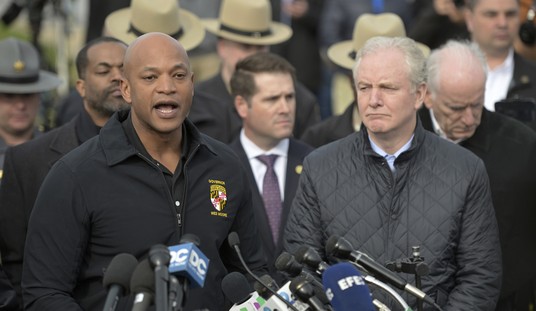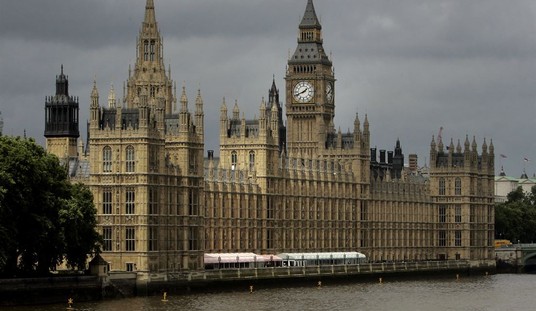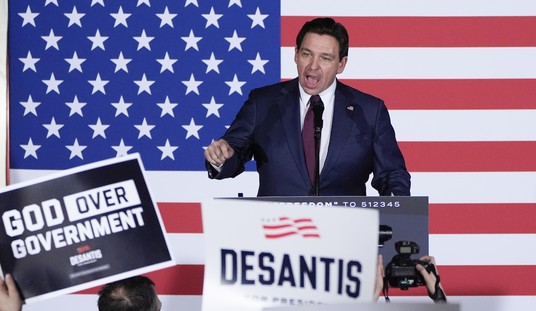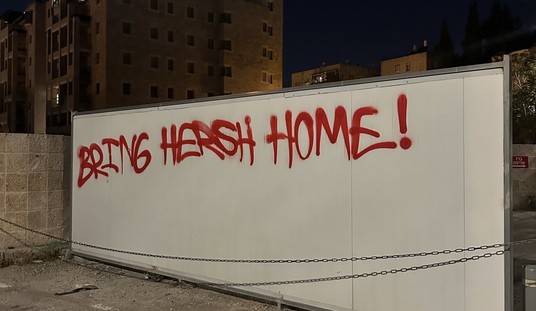The White House announced today that it would refuse to issue a visa to Hamid Aboutalebi, the Iranian envoy to the United Nations, over his connection to the 1979 hostage crisis in Tehran. Aboutalebi belonged to the “student group” who seized Americans from the US embassy despite having diplomatic immunity, and the Iranian government held them captive for 444 days:
The White House said on Friday that an Iranian official who was in the student group that took U.S. diplomats hostage in 1979 will not be issued a visa to allow him to become Iran’s ambassador to the United Nations.
WH now says US "will not issue a visa" to Iran's UN Ambassador.
— Mark Knoller (@markknoller) April 11, 2014
Carney: “We have informed the U.N. and Iran that we will not issue a visa” to Iranian diplomat
— Zeke Miller (@ZekeJMiller) April 11, 2014
Earlier this week, the Senate unanimously passed a bill backed by Ted Cruz and Chuck Schumer that would have forced the White House to refuse the visa request, although that may have been challenged in court by this or a future administration. The House quickly passed it afterward, and it’s now sitting on Barack Obama’s desk. So far they haven’t decided on whether to sign the bill:
At same time, @presssec still cannot say whether Pres Obama will sign visa denial bill passed by Congress.
— Mark Knoller (@markknoller) April 11, 2014
However, that decision appears to run afoul of obligations under Article IV of the 1947 treaty establishing UN headquarters within the US. In Section 11 and 13, the US agreed to credential diplomats from member states without “impose[ing] any impediments to transit to or from the headquarters district of (1) Representatives of Members or officials of the United Nations[.]” Jay Carney referred any questions over the treaty provisions to the State Department, but for now Aboutalebi is out of luck.
Update: Yahoo’s Olivier Knox and Zeke Miller point out a possible 25-year-old precedent:
On Nov. 24, 1988, we received an application from Mr. Yasir Arafat, Chairman of the P.L.O., for a visa to attend the United Nations General Assembly session in New York City as an invitee. The Secretary of State has decided not to recommend a waiver of ineligibility in this case; the visa application therefore is not approved.
The U.S. Government has convincing evidence that P.L.O. elements have engaged in terrorism against Americans and others. This evidence includes a series of operations undertaken by the Force 17 and the Hawari organizations since the PLO claimed to foreswear the use of terrorism in the Cairo Declaration of November, 1985. As chairman of the P.L.O. Mr. Arafat is responsible for actions of these organizations which are units of Fatah, an element of the P.L.O. of which he also is chairman and which is under his control. The most recent sign of Mr. Arafat’s associations with terrorism was the presence at the Algiers session of the Palestine National Council this month of Abu Abbass, a member of the Executive Commitee of the P.L.O. who has been convicted by the Italian judicial system of the murder of an American citizen, Mr. Leon Klinghoffer. P.L.O. and Terrorism
The P.L.O.through certain of its elements has employed terrorism against Americans. Mr. Arafat, as Chairman of the P.L.O., knows of, condones and lends support to such acts; he therefore is an accessory to such terrorism.
Terrorism and those involved in it are a serious threat to our national security and to the lives of American citizens. The Headquarters Agreement, contained in Public Law 80-357, reserves to us the right to bar the entry of those who represent a threat to our security.
At the time, the PLO was already an observer at the UN, and the US had previously granted visas to its representatives. They balked at Arafat, although within a few years he became the foreign leader who paid the most visits to the White House during the Clinton presidency.
Update: Pocket veto?
https://twitter.com/OKnox/status/454673391690452992








Join the conversation as a VIP Member